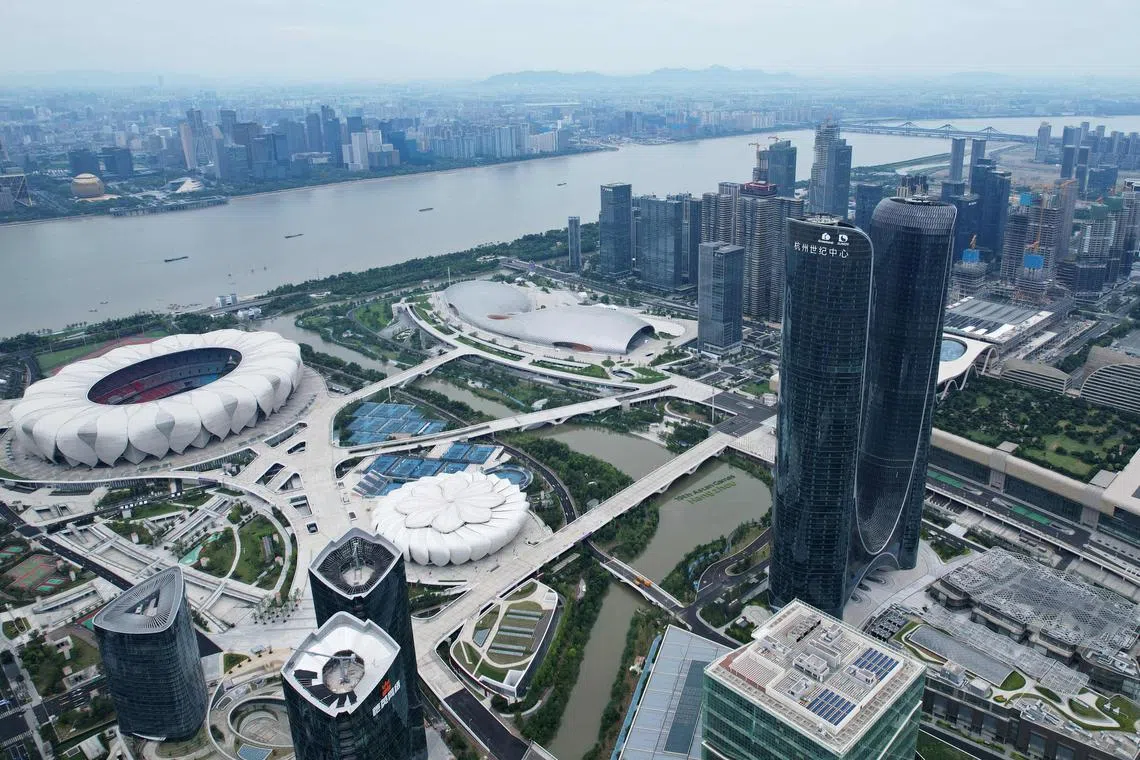Chinese province Zhejiang eases residency rules to promote equality
Sign up now: Get insights on Asia's fast-moving developments

The new policy, which is part of the efforts to achieve “common prosperity”, will take effect on July 22 and lasts for five years.
PHOTO: AFP
BEIJING – China’s eastern province of Zhejiang will remove restrictions on household registrations in most areas except for the capital city of Hangzhou in a move to foster income equality and spur economic growth.
China’s household registration system, known as hukou, restricts people from accessing government services outside the area where they are registered as residing.
The location of registration is generally determined by a person’s parents’ legal residence at the time of birth.
The new policy, which is part of the efforts by the authorities in Zhejiang to achieve “common prosperity”, will take effect on July 22 and lasts for five years, according to a statement posted on the local government website, on July 3.
Zhejiang is one of the richest local government areas in China, with online shopping site Alibaba Group headquartered in Hangzhou.
In 2021, it was chosen as the pilot province in President Xi Jinping’s campaign to reduce inequality in China – a policy which was termed ‘common prosperity’.
The plans outlined by the province two years ago included a focus on rural development.
Allowing people to legally move permanently from the countryside to cities in the province will likely improve their access to state services like education, healthcare and pensions.
“These changes in Zhejiang are very important and potentially a good model for other parts of the Yangtze River Delta, which includes some of the most desirable places to live and work. The devil, of course, is in the details of implementation,” said Professor Mary Gallagher, a political science expert at the University of Michigan.
Zhejiang attracts migrant workers from many poorer provinces in China, and it remains to be seen how easy it will be for those people, many of who have lived there for decades, to become legal residents, she said.
Over the long term, the increased mobility may act as a growth driver by creating demand for new housing as people move permanently to the cities. That may boost the economy, which has struggled in 2023, partly due to the slumping property market.
China should reform its household registration system to unleash the consumption potential of its vast migrant workers, Mr Cai Fang, a policy adviser to the central bank, was reported as saying earlier in July.
In 2019, China’s National Development and Reform Commission called on cities with populations under 3 million to get rid of hukou restrictions.
Addressing the inequality between how public services are accessed in rural and urban areas would be a “permanent cure” to help drive domestic consumption growth, said Mr Liu Shangxi, head of the Chinese Academy of Fiscal Sciences, in an interview with state media earlier in July.
The academy is a think-tank associated with the Ministry of Finance.
The number of migrant workers nationwide stood at 187 million as of the end of June – up 3.2 per cent from a year ago, according to figures released by the National Bureau of Statistics on Monday.
Separately, the per capita disposable income of rural residents rose 7.2 per cent in the first half of the year. That was faster than the 4.7 per cent growth recorded among urban dwellers, though the actual value of rural income was still half that recorded in cities, the data showed.
The government has often looked to rural consumption to boost economic growth during down-cycles.
In the aftermath of the global financial crisis in the late 2000s, officials launched a nationwide programme to promote car and home appliance sales in the countryside.
In June, the authorities began a six-month campaign to encourage car purchases and drive electric vehicle adoption in rural areas. BLOOMBERG


